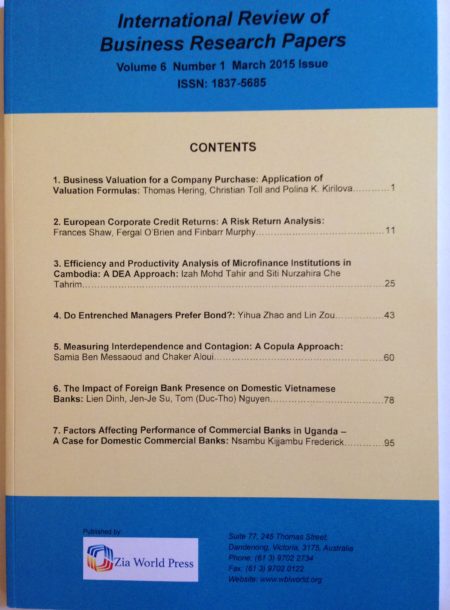International Review of Business Research Papers
Vol. 16. No. 1., March 2020, Pages: 34– 54
Financial Innovations and its Impact on Money Demand in Bangladesh: An Error Correction Model (ECM) Approach
Mainul Islam Chowdhury and Sunny Rabiul Karim
Rapid innovations in the financial sector is changing the characteristics of different macroeconomic variables like the money demand function. There has been several studies to investigate the determinants of money demand in Bangladesh but none has emphasized on the impact of financial innovation on the money demand function. The main focus of this paper is to fill that gap by answering the following question “Does financial innovations have a significant impact on the demand for money?” The paper employs the Auto Regressive Distributed Lag (ARDL) Model and the Error Correction Model (ECM) to investigate the long-term and short-term impact of financial innovations on the money demand function in Bangladesh. Determining a money demand function is crucial for the effectiveness of monetary policy. This study finds a strong and significant positive relationship between money demand and financial innovations in Bangladesh. Money demand also responds positively to the industrial production index (a proxy for economic activity). Inflation, on the other hand, has a strong and significant negative relationship with money demand. Interest rate and exchange rate does not seem to have a significant impact on money demand in Bangladesh.

